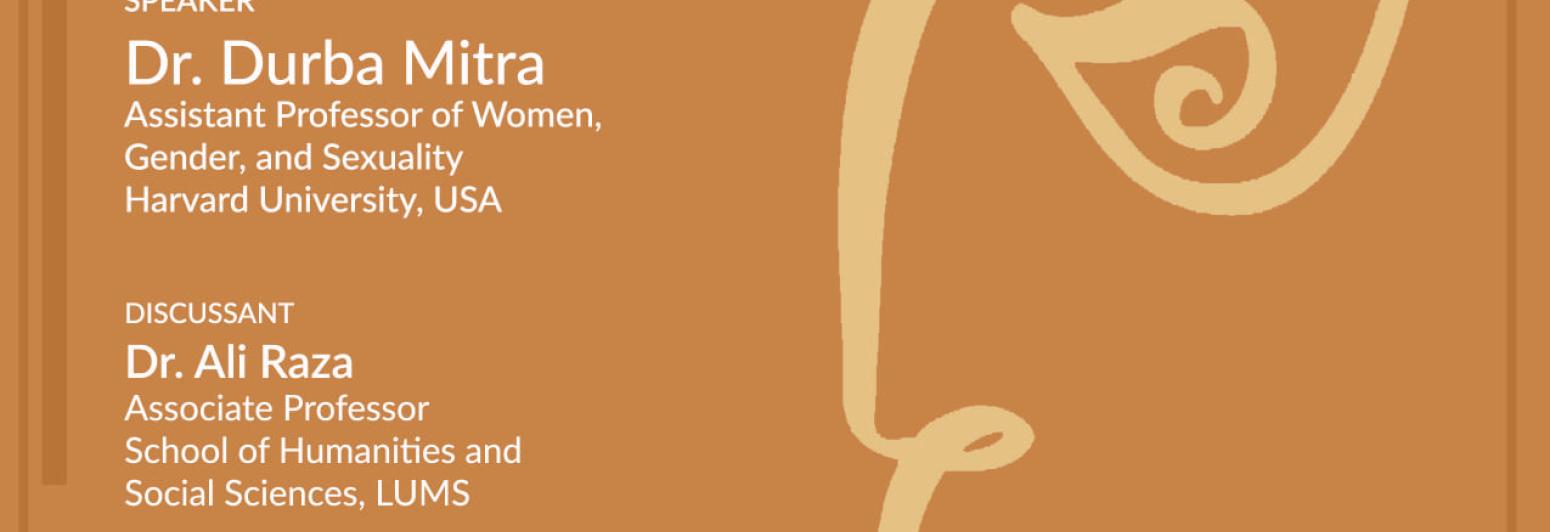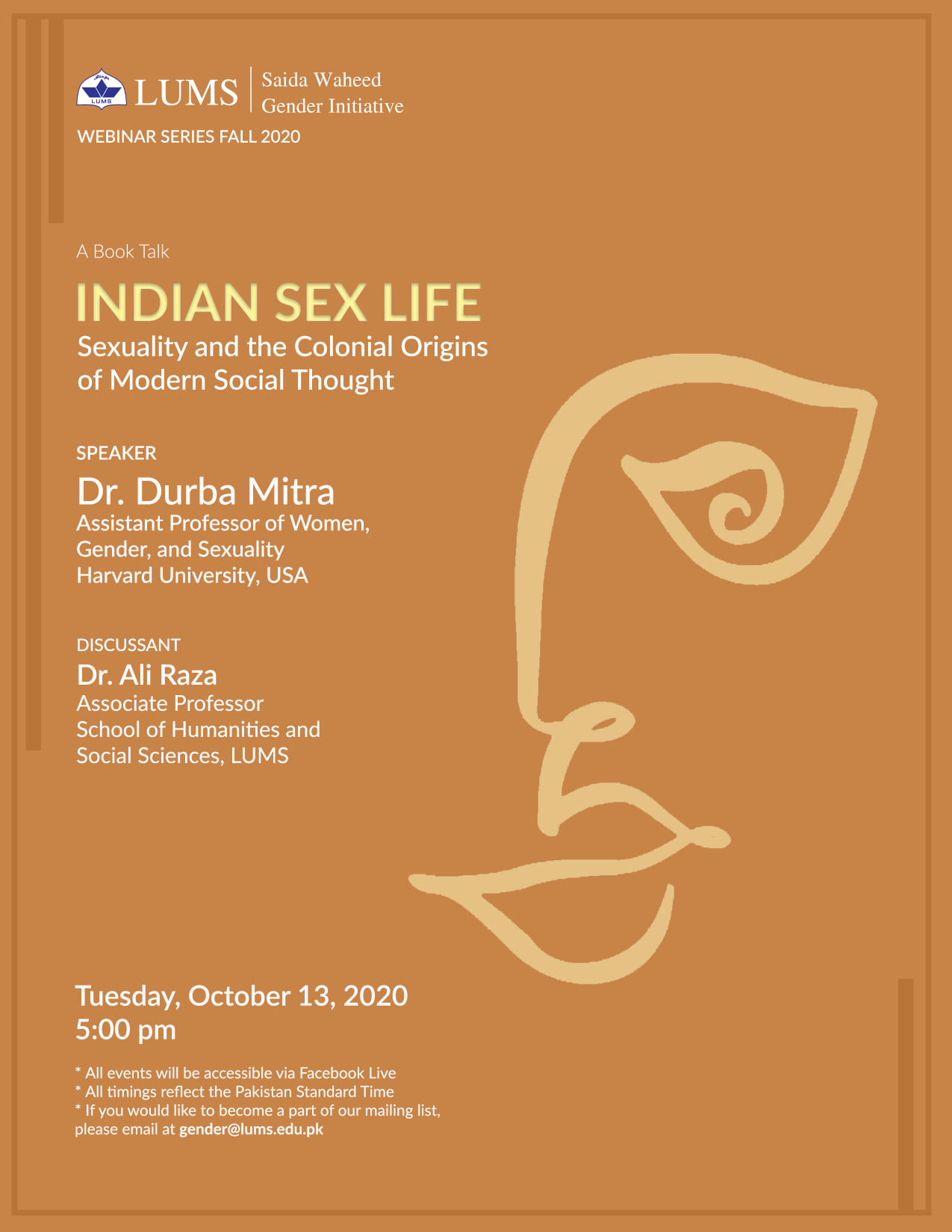
to
Event link: https://www.facebook.com/genderatlums/videos/642843696422175
During the colonial period in India, European scholars, British officials, and elite Indian intellectuals—philologists, administrators, doctors, ethnologists, sociologists, and social critics—deployed ideas about sexuality to understand modern Indian society. In Indian Sex Life, Dr. Durba Mitra shows how deviant female sexuality, particularly the concept of the prostitute, became the primary way to think and write about Indian society. Dr. Durba reveals that ideas of deviant female sexuality were critical to debates about social progress and exclusion, caste domination, marriage, sexual violence, widowhood and inheritance, women’s performance, the trafficking of girls, abortion and infanticide, industrial and domestic labor, indentured servitude, and ideologies about the dangers of Muslim sexuality. She demonstrates how the intellectual history of modern social thought is based in a dangerous civilizational logic built on the control and erasure of women’s sexuality. This logic continues to hold sway in present-day South Asia and the postcolonial world.
This conversation between Dr. Ali Raza and Dr. Durba Mitra explore the enduring importance of this history of the control and erasure of women's sexuality for thinking about issues of sexuality, sexual violence, and women's lives historically and today in South Asia.
Speaker bio:
Dr. Durba Mitra is Assistant Professor of Women, Gender, and Sexuality and Carol K. Pforzheimer Assistant Professor at the Radcliffe Institute at Harvard University. Mitra works at the intersection of feminist and queer studies. Her research and teaching focus on the history of sexuality, the history of science and epistemology, and gender and feminist thought in South Asia and the colonial and postcolonial world. Mitra’s book, Indian Sex Life (Princeton University Press, 2020), demonstrates how ideas of deviant female sexuality became foundational to modern social thought. Her current research explores the history of Third World feminist theory and South-South solidarity movements.
Discussant bio:
Dr. Ali Raza is a historian of modern South Asia and an Associate Professor of History at the School of Humanities and Social Sciences. He is the author of Revolutionary Pasts: Communist Internationalism in Colonial India (2020)

